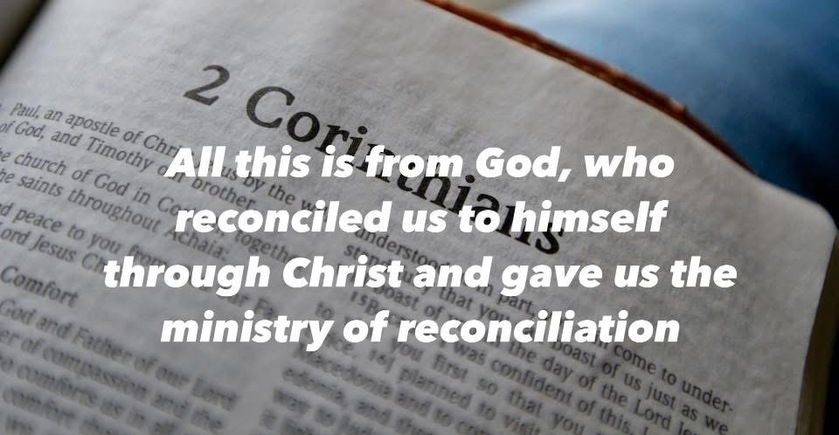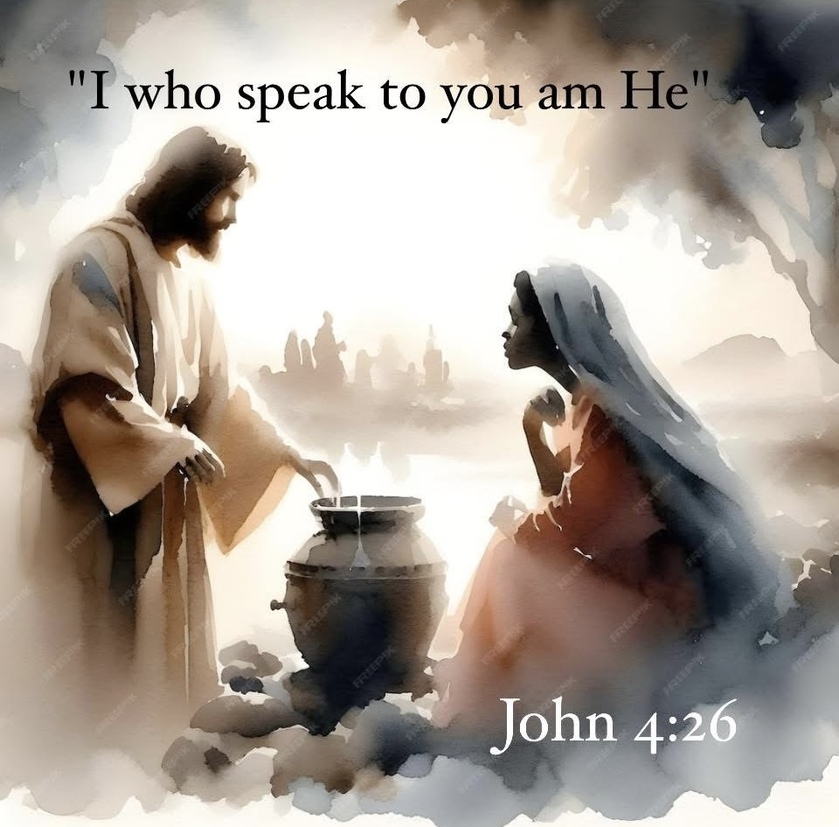From Riot to Revival: Why the Gospel Still Sparks Holy Chaos Today
Acts 19:21-23
"Now after these events Paul resolved in the Spirit to pass through Macedonia and Achaia and go to Jerusalem, saying, "After I have been there, I must also see Rome." And having sent into Macedonia two of his helpers, Timothy and Erastus, he himself stayed in Asia for a while. About that time there arose no little disturbance concerning the Way."
"The Way"—an early term for Christianity, emphasizing it as a way of life and pointing to Jesus as the only path to God (John 14:6), is sparking intense opposition. And what seems to be happening is the transformative power of The Holy Spirit was just a little too real even for these people who live in a time when there was so much spiritualism, paganism, witchcraft, shamanism, and so on. And there was this one particular guy...
Acts 19:24
"a man named Demetrius, a silversmith, who made silver shrines of Artemis, brought no little business to the craftsmen."
...this guy crafts shrines for Diana (also known as Artemis in Greek mythology) and he had a profitable business making these idols which is now being threatened by the spread of Christianity, leading him to incite a riot against the Apostle Paul and his companions. Demetrius rallies others in his profession as well to incite this chaos. Typical, Department of Commerce stirring up trouble to deflect from their hidden agendas. And he cleverly appeals to civic pride, warning that Artemis’s temple might lose its global renown, blending financial self-interest with religious fervor. The result? A frenzied mob rushes to the theater, chanting "Great is Artemis of the Ephesians!" for hours, dragging Paul’s associates Gaius and Aristarchus into danger (Acts 19:28-32).
Paul is restrained from entering the fray by concerned friends, including Asiarchs (high-ranking officials), and the riot dissipates only when the town clerk intervenes, emphasizing legal order to avoid a Roman reprisal (Acts 19:35-41). This "no little disturbance" exemplifies how the gospel’s advance often provokes backlash from those whose livelihoods or worldviews are upended, much like modern conflicts where faith challenges cultural norms or industries.
The timeless principle is always the same, "follow the money". Demetrius’s primary motive isn’t pure devotion to Artemis but protecting his "no little business." The gospel "Way" often exposes how idolatry intertwines with greed, as people abandon false gods and the products tied to them. This mirrors how true spiritual awakening can put evil out of business, whether it be ancient idol-making or contemporary vices like cultic exploitation or materialistic Magisterium's and traditions. So much for simplistic notions of "coexist". The Ephesian riot’s dynamics persist even in our modern conflicts where Christianity challenges cultural norms and industries profiting from sin. Just as Demetrius defended his trade, contemporary backlashes often stem from economic threats posed by Christian activism. Pro-life Christians, drawing from biblical views on life’s sanctity (Psalm 139:13-16), have campaigned against abortion providers, influencing laws like the overturning of Roe v. Wade in 2022. This has disrupted clinics and organizations like Planned Parenthood, facing funding cuts and closures amid activism that highlights the exploitation of women for profit.
Another modern example is Christian groups advocating for bans and regulations on the pornography industries, viewing porn as addictive and dehumanizing (Matthew 5:28). Organizations like the Religious Alliance Against Pornography educate on its harms, pushing for policies that threaten the multi-billion-dollar sector’s unregulated growth. This activism disrupts profits from objectification, echoing the gospel’s call to purity and exposing greed-driven idolatry.
Reflection:
In your life, examine where "following the money" reveals compromises. Boldly live the Way, confronting modern idols, whether materialistic traditions or exploitative industries, trusting the Holy Spirit to guide and protect you amid any disturbances.
GOING FORWARD...
Acts 20:1-2
"After the uproar ceased, Paul sent for the disciples, and after encouraging them, he said farewell and departed for Macedonia. When he had gone through those regions and had given them much encouragement, he came to Greece."
Rather than fleeing in fear, Paul gathers the disciples for a heartfelt farewell, embracing them with exhortation before pressing on in his third missionary journey. In a world where opposition to "the Way" often follows "following the money," as we explored previously, Paul’s response shows how the Holy Spirit empowers believers to move forward, building up others even after disturbances. Paul planned to sail to Syria but rerouted through Macedonia due to a Jewish plot (Acts 20:3-6).
So, they gathered on the first day of the week (Sunday) to break bread together and share in a very long word.
Acts 20:7
"On the first day of the week, when we were gathered together to break bread, Paul talked with them, intending to depart on the next day, and he prolonged his speech until midnight."
Here, the early church assembles on Sunday (the first day, signifying the Lord’s resurrection day), not just for fellowship but to "break bread", likely a reference to the Lord’s Supper intertwined with a communal meal, and to receive an extended teaching from Paul. This passage reveals the Holy Spirit’s empowerment through community, worship, and the Word, even in ordinary gatherings that turn extraordinary. The assembly occurs in an upper room, lit by many lamps (Acts 20:8), with believers packed in for teaching and communion. "Breaking bread" echoes Jesus’ institution of the Lord's Supper (Luke 22:19) and early church practices (Acts 2:42, 46), blending the remembrance of Christ’s sacrifice with shared meals. This sets the stage for the miracle: young Eutychus, overcome by sleep, falls from a third-story window and dies, only for Paul to revive him, declaring, "Do not be alarmed, for his life is in him" (Acts 20:9-12).
There's a lot to learn from these things, but historically, this particular shift to Sunday worship marks a departure from the Jewish Sabbath observance, rooted in Christ’s resurrection (Matthew 28:1; John 20:19, 26) and reinforced by collections on the first day (1 Corinthians 16:2). Some would claim that Sunday worship was started under Constantine, but this passage reveals an earlier tradition. Early Christians observed Sunday as "the Lord’s Day" to commemorate Christ's command, and to remember the resurrection. A practice evident from the first century onward, well before Constantine’s 321 AD edict that merely formalized a civil day of rest influenced by existing Christian customs. This is evidenced in writings by the early church fathers like Ignatius (c. 110 AD) and Justin Martyr (c. 150 AD) who attest to Sunday gatherings for The Lord’s Supper and teaching, rooted in the resurrection. While Constantine’s compromised edict blended Christian practice with Roman sun veneration for political unity, it built on a pre-existing Christian tradition evident in New Testament texts like Acts 20:7 and Revelation 1:10.
Conclusion:
As we conclude our study on this profound narrative from Acts 19:21–20:12, we see a tapestry of faith, opposition, resilience, and renewal. In our modern Christian life, we should "follow the money" to uncover compromises, perhaps in consumerism, entertainment, or traditions prioritizing gain over godliness. Like Paul, respond to disturbances with encouragement, adaptability (rerouting plans), and communal worship. Gather on Sundays, not as a ritual, but for resurrection-powered fellowship, expecting the Holy Spirit to revive "dead" areas amid teaching and breaking bread. Boldly confront our modern idols, trusting divine protection through unlikely allies, just as in Ephesus and Troas.
This study reminds us that "the Way" isn’t a path of easy coexistence but one of holy disruption, leading to eternal life. From riots rooted in greed to miracles in midnight gatherings, God’s sovereignty shines, empowering us to persevere, encourage, and worship authentically.
Examine your heart: Where has opposition deterred you?
How can Sunday assemblies fuel your mission?
Do not be afraid. Embrace the Holy Spirit’s "too real" power to transform disturbances into testimonies, changing death into living water.
Prayer:
Eternal Father, thank You for "the Way" that challenges darkness and brings life. Send your Spirit to guide us through upheavals, expose idolatry’s greed, and revive us in community. Strengthen us to live boldly, encouraging others and honoring Your resurrection day. May our lives reflect Your transformative power, putting evil out of business for Your glory. In Jesus’ Holy name, Amen.




















